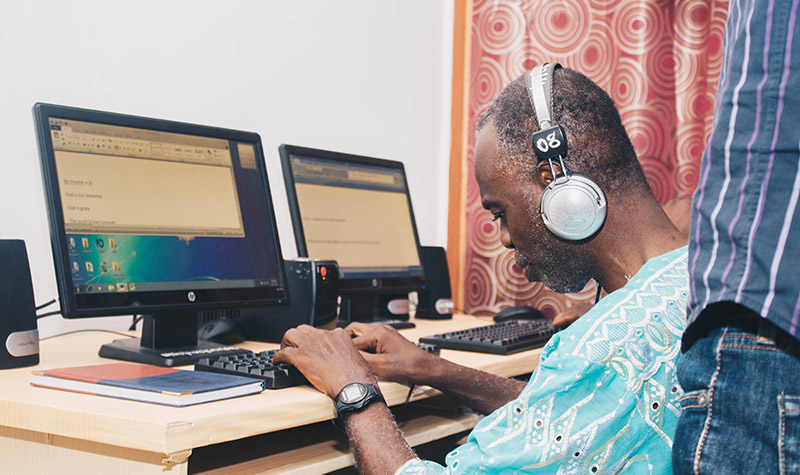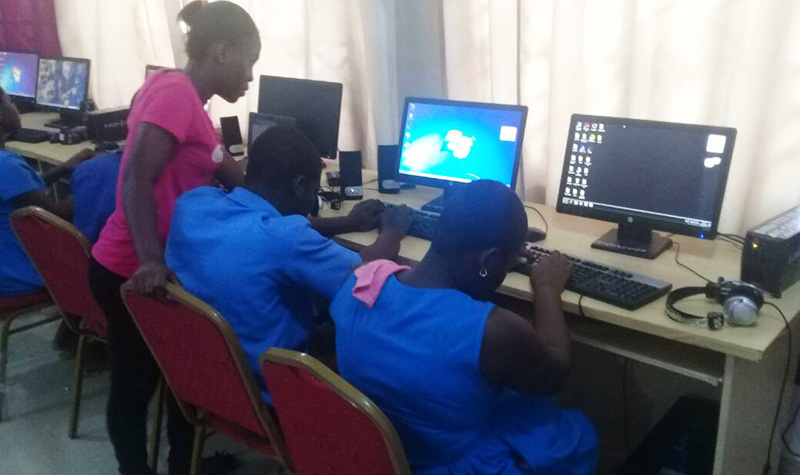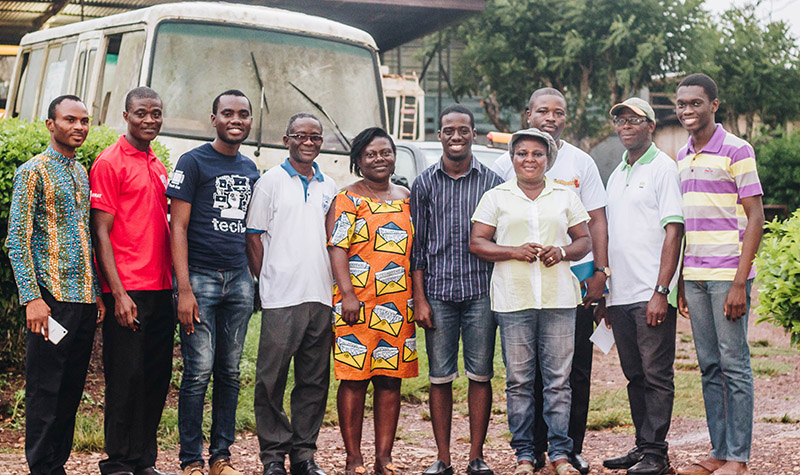
Every year, Ashesi juniors spend a week out of school reaching out to local and mostly underserved communities through high-impact projects. This service-learning, part of the Leadership as Service course, requires students to do a minimum of forty hours of community engagement.
One such project is Tech-for-the-Blind, which provides special education services for the visually impaired. The initiative is run by Tech Era, a student-initiative whose focus is providing basic IT training to persons in underserved communities.

“In Ghana, while the technology is available to train visually impaired persons to use computers and smartphones, there is a lack of personnel to do this training,” said Derick Omari ‘18, founder of Tech Era. “Due to this gap, most visually impaired persons are left behind in the technological world. We started Tech Era on a vision to create an Africa where IT is a local language, so we have to ensure that the disabled are not left out.”
While the school is equipped with a computer lab, it only has two IT instructors assigned to over 400 students. Over the mid-semester break, Tech Era held a workshop to train more teachers, both blind and sighted, and the school’s students on how to use the technologies for the visually impaired.

“Teaching the visually impaired to use technology is extremely hands-on, and unsurprisingly, a close to impossible task for just two teachers at Akropong school for the Blind,” explained Derick. “Through the service learning week, we were able to evaluate best practices in our attempt to roll out a master plan to train more teachers. We also worked with the students to understand how to effectively impart IT knowledge to persons with visual impairment. So, over the next year, our goal is to help train about 100 students to use computers and smartphones well.”
“I believe everyone should be able to access technology to improve their livelihoods,” said Sandra Osei-Mintah ‘19, who worked with the team. “So when I learned about some of the challenges visually impaired persons face in accessing technology, I signed up for the project, hoping to make some impact. Service-learning goes beyond just practicing what you’ve learned in the classroom; it involves empathy, relationship building and sometimes impacting lives in ways that may not even be visible.”

“It makes one aware of the needs of people around you, especially the underprivileged or those with disabilities,” said Immanuella Duke ’19. “It helps you provide some form of healing and also helps you empathize with them, so you can even learn from them. It teaches you to be committed to the growth of others, even in their disabilities.”

“Today, there is very little we can do without technology,” said Derick. “Meanwhile those who need technology for the most basic things unfortunately do not know how to use it. If we want to create an inclusive society, and a society where everyone has equal access to opportunities, then we all have to start thinking about ways of addressing some of these challenges.”
Share this story
